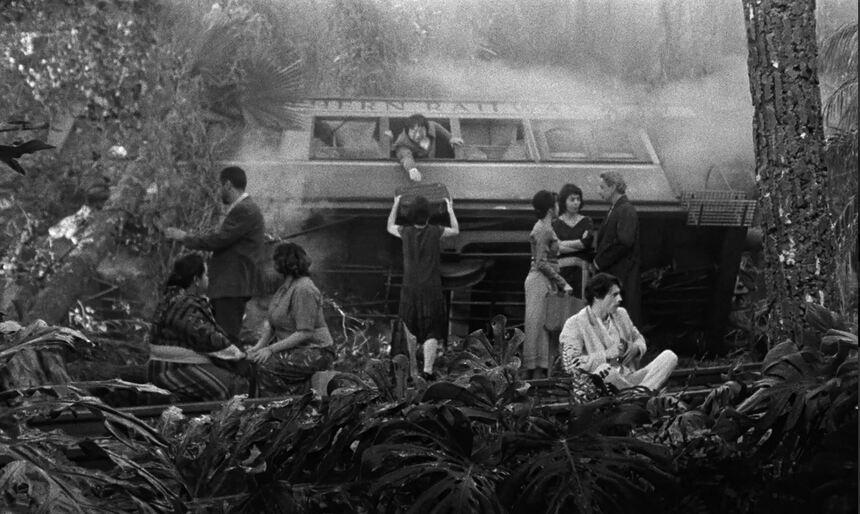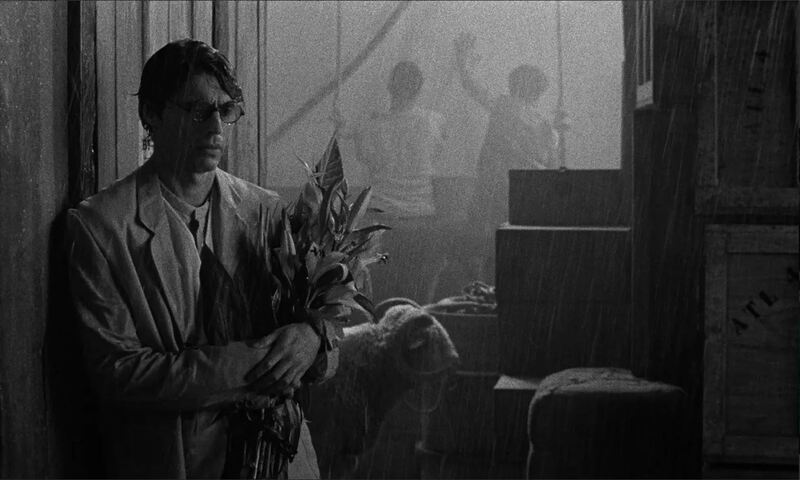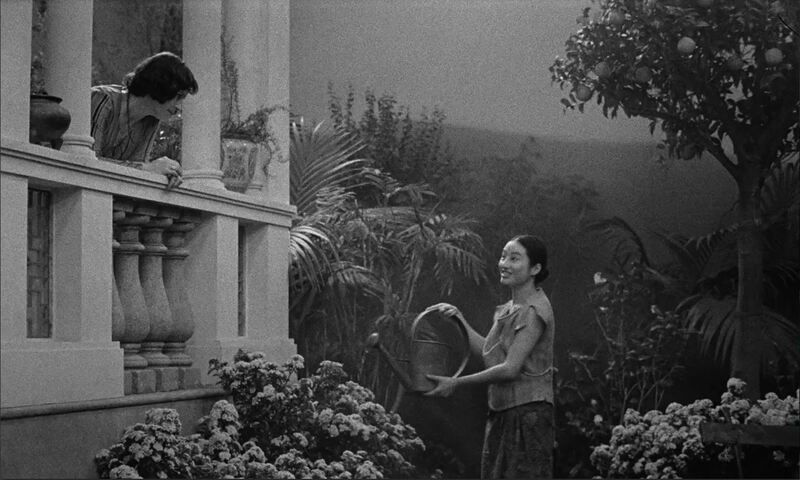Karlovy Vary 2024 Review: GRAND TOUR, A Cinematic Travelogue Blending Past and Present

The Portuguese auteur Miguel Gomes has established himself as a crucial figure in contemporary cinema, known for his unfiltered cinephilia. He has carved a niche in the international film scene with a signature style that defies conventional storytelling, genre framing, and formalism.
Renowned for his willingness to take formal risks, Gomes has created films that intricately blend fiction and reality. His previous works, such as Tabu, Arabian Nights, and the experimental COVID chronicle The Tsugua Diaries, have been celebrated for their unique cinematic experiences. Grand Tour, his sixth feature, continues this trend, offering a layered and multifaceted work that serves as a heartfelt homage to cinema itself.
Grand Tour, co-written by Mariana Ricardo, Telmo Churro, Maureen Fazendeiro, and Miguel Gomes, draws inspiration from W. Somerset Maugham’s travel writing, specifically a tale about a man who fled his fiancée only to be eventually caught and happily married. The anecdote forms the narrative framework for Gomes' film, but he expands upon it by exploring addiitonal themes.
Set in 1918 Rangoon, the film's first half follows a British civil servant Edward (Gonçalo Waddington), as he attempts to avoid his fiancée of seven years, Molly (Crista Alfaiate). The getaway leads him on an odyssey through colonial Burma, Singapore, Bangkok, Saigon, Manila, Osaka, Shanghai, and the Chinese hinterlands. His journey, initially driven by panic, gradually evolves into a melancholic reflection on his life, imbued with existentialist undertones.
In the film's second half, the focus shifts to Molly, who, undeterred by Edward’s attempts to evade her, resolutely follows his trail through the same locales. The dual perspective not only enriches the narrative but also deepens the exploration of the characters' internal landscapes and the broader themes of connection and self-discovery.
Grand Tour continues Miguel Gomes' exploration of the docu-fiction hybrid, blending scripted scenes with contemporary footage shot on 16mm film during his own travels through Asia in 2020. Gomes collaborated with three cinematographers: Rui Poças, Sayombhu Mukdeeprom, and Guo Liang. Mukdeeprom and Liang shot the contemporary documentary footage remotely across Asia, while Poças handled the scripted scenes, which were filmed entirely on a soundstage in Europe.
The scripted segments were captured in black and white, a decision influenced by the complexity of set construction and a desire to avoid digital effects. The choice not only pays homage to classic filmmaking techniques but also enhances the film's nostalgic and dreamlike quality. The scripted scenes are each stylized as if unfolding in different corners of Asia, from jungles to mountain monasteries, and feature a slightly expressionist aesthetic reminiscent of a bygone era.
This approach creates a visual and temporal dissonance with the contemporary footage. The meticulously crafted yet evidently artificial studio scenes stand in stark contrast to the vibrant, unfiltered images from the present day, captured during the team’s journey across Asia. Such era-defying disjunctive montage challenges the viewer to reconcile past and present, fiction and reality, in a way that is engaging, meditative, and thought-provoking.
The narrative structure mirrors Gomes’ penchant for multipart storytelling. The first half of the film, focusing on Edward’s escape, captures his growing melancholy and introspection, depicting a facet of masculinity distinct from the second half. When the film shifts to Molly’s perspective, it portrays men making greater sacrifices for her amidst her brash laughter. The dual perspective not only highlights character and gender differences but also creates an interplay between Edward’s somber reflections and Molly’s spirited pursuit. Therrefore, the film's dynamic oscillates between comedy and melodrama, blending elements of screwball comedy and tragedy alike.
Edward’s flight from his impending marriage becomes a metaphor for his existential search for meaning, while Molly’s pursuit symbolizes her steadfastness, resilience, and determination. The grand tour thus becomes a canvas for examining broader themes of identity and purpose. The contemporary footage of Asia, interspersed with the period scenes, serves as a reminder of the ever-changing yet timeless nature of these motifs. However, the style and formalism triumph over the fable of the runaway groom.
Similarly to the on-location shot sprawling epic The Arabian Nights, Gomes' direction in Grand Tour is marked by a balance between control and spontaneity. The studio scenes allowed for creative freedom and improvisation, reflecting Gomes' desire to capture the unexpected moments that bring a story to life.
The remote direction of the Chinese outdoor scenes, necessitated by COVID-19 lockdowns, added another layer of authenticity to the film's production, showcasing Gomes' adaptability and innovative spirit. Gomes employed an instinctive, adaptive shooting process, heavily reliant on research and a passion for capturing desired images.
Grand Tour stands out for its ambitious blending of genres, time periods, and cinematic techniques. It builds on the themes and stylistic choices of Gomes' earlier works while pushing the boundaries of a more epic, or grand, narrative. The film’s deliberate anachronisms and playful use of artifice underline the fluid nature of cinema, becoming a post-modern encapsulation of the medium's existence and mechanics transcending the centenary of its existence.
Grand Tour
Director(s)
- Miguel Gomes
Writer(s)
- Telmo Churro
- Maureen Fazendeiro
- Miguel Gomes
Cast
- Gonçalo Waddington
- Crista Alfaiate
- Cláudio da Silva









